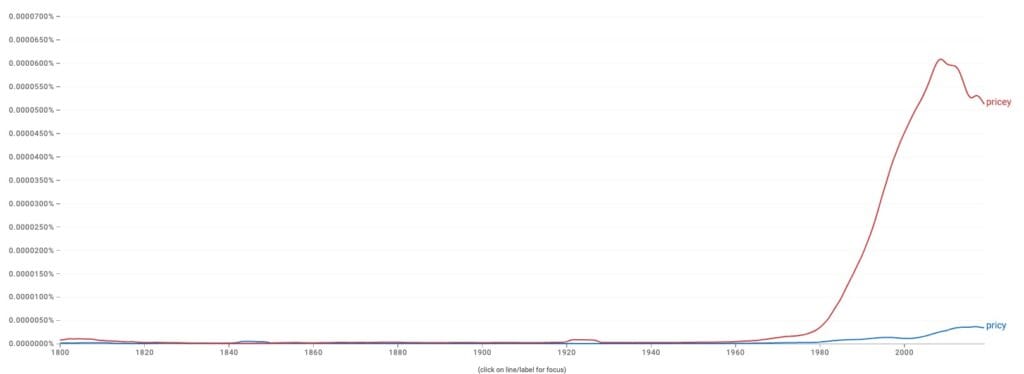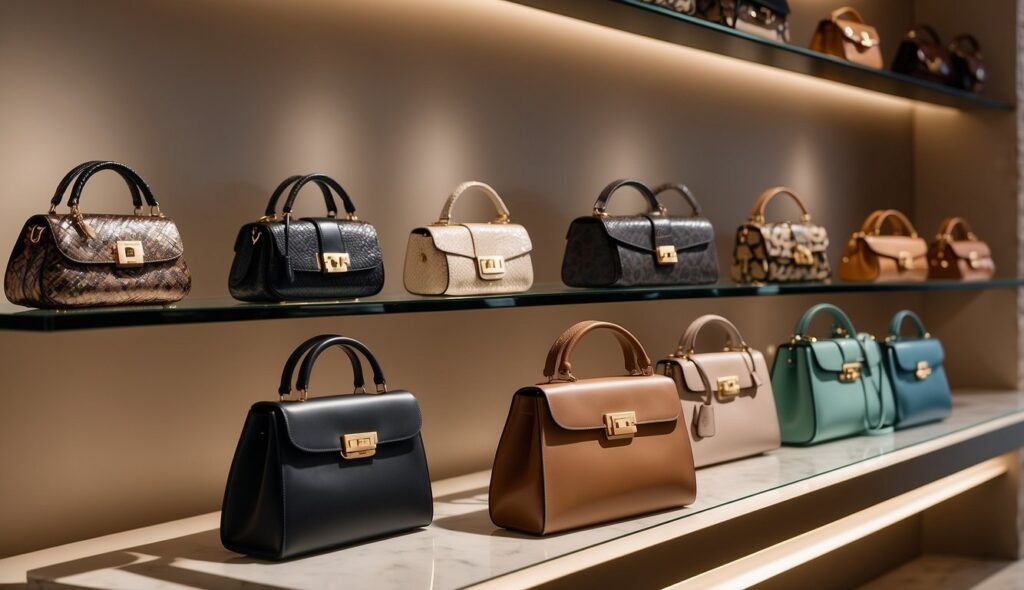When discussing the cost of items or services, you might come across the term “pricey” or “pricy”.
So, what’s the correct spelling between pricey and pricy? Both spellings are correct, but pricey is more common than pricy. Both words represent the same concept, often used interchangeably, and are informal ways of describing something as expensive or high-priced.
In this article, we will delve into the nuances, differences, and correct usage of these synonymous terms in written and spoken English, aiding you in making informed decisions on which variant to use.
Key Takeaways
- Both “pricey” and “pricy” are informal adjectives describing expensive items or services
- “Pricey” is a more common and preferred spelling, while “pricy” is less often used
- They can be used interchangeably, but it’s important to consider the context and audience for better communication.
Pricey vs Pricy: Origins, Meaning and Difference
Historically, “pricy” has been the common way to spell the adjective form of the word “price” and its usage can be dated back to the early 1800s when the modern-day English language was still fairly new.
However, “pricey” has always been more popular than “pricy” and has become more prevalent over time, while “pricy” has fallen out of use (source).
Both words convey the same message – that something is expensive, holds high value, or requires a significant amount of money.
Using “pricey” or “pricy” to describe an item highlights its monetary worth and may suggest it’s a luxury or an indulgence.
Major dictionaries such as Merriam-Webster list “pricy” as a less common variant of “pricey”.

Correct Spelling and Usage
American Versus British English
While “pricey” and “pricy” are both correct spellings, the difference lies in American and British English usage. The spelling “pricey” is more commonly used in British English, while in American English, you may find both spellings being used, with “pricey” being more popular.
General Rules
In general, “pricey” is the preferable spelling when referring to something expensive or costing a high amount. This spelling follows the general grammatical rule, which states that changing the noun ending from “ace” or “ice” to an adjective requires adding a “y” after the consonant. Considering this rule, “pricey” becomes the widely approved spelling.
Exceptions
As a variant spelling, “pricy” is not incorrect but a less common alternative. Some dictionaries and publications might use “pricy” based on historical usage or regional preferences. However, ensuring consistency within a single piece of writing is essential.
To avoid confusion, stick with the spelling “pricey” for a clear and consistent understanding of the term in your writing.
Synonyms and Antonyms
Some common synonyms describing an expensive item include costly, expensive, dear, overpriced, and high-priced. These terms can be used interchangeably in most contexts to convey the same meaning.
Conversely, the antonym affordable can be employed if you wish to express the opposite notion.
Relation to Other Adjectives
Pricey and pricy share some meaningful relationships with other adjectives within the English language. They both represent the cost aspect of items or services, while other adjectives might describe their level of quality, such as luxury or premium.
Their connection to affordability influences other adjectives that describe the monetary value of items, like budget-friendly or economical. In this sense, the adjectives chosen can give the reader a more comprehensive understanding of the associated cost and quality factors.
Usage and Examples
The suffix -y is quite versatile in the English language. You can add it to nouns and verbs to create adjectives that effectively describe an attribute or quality. In the case of the words “pricey” and “pricy”, both are acceptable variations stemming from the noun “price”. However, pricey has become the more common and popular variation of the two spellings.
When using the suffix -y, based on the phonetics and morphology of a particular word, you might encounter spelling changes other than just adding it at the end of a base word. For instance, if the noun ends in a silent e, the e is typically dropped, as in “price” becoming “pricey” in contemporary English usage.
Let’s look at some specific case of usage with examples:
Cost Evaluations
You can use pricey or pricy in informal conversations to describe something as expensive or overpriced. For example, you might say, “The hotel downtown is quite pricey, but the rooms are luxurious.”

If you’re on a budget, being aware of the term “pricey” can help you differentiate between affordable options and those out of your price range. While discussing your costs, you can use phrases like, “The designer handbags are beyond my budget; they’re too pricey.”

Another example is “She showed off her collection of pricey jewellery at the fancy gala.”

Language Preferences
Within formal writing, it’s better to use terms like “expensive” or “high-priced” over “pricey” or “pricy.” These terms convey a more formal tone and help maintain your writing’s clarity.
Here’s an example of rephrasing a sentence for formality:
“The gadgets in the electronics store were too pricey for my taste” could be rephrased as “The electronics store had an expensive range of gadgets.”
When communicating with international audiences, consider using the more popular spelling—pricey—as it’s more likely to be recognised.
However, remember that “pricey” or “pricy” is best suited for informal contexts, while more formal language should be used in business settings or official documents.
Frequently Asked Questions
Is there a difference between pricey and pricy?
No, there is no difference between the terms “pricey” and “pricy.” Both words are adjectives used to describe something expensive or costly, with “pricy” being a less common variant of “pricey.”
What makes something considered pricey?
An item is considered pricey if its cost is relatively high compared to similar products or other items in the market. Various factors, such as production costs, brand reputation, and market demand, can contribute to the perception of a pricey product.
Are pricey items always of better quality?
While pricey items often have a reputation for being higher quality, this is not always the case. It is essential to research and compare products to determine if the price difference genuinely indicates increased quality, performance, or sustainability. Some pricey items may have inflated costs due to factors like branding or market positioning that do not necessarily reflect improved quality.


